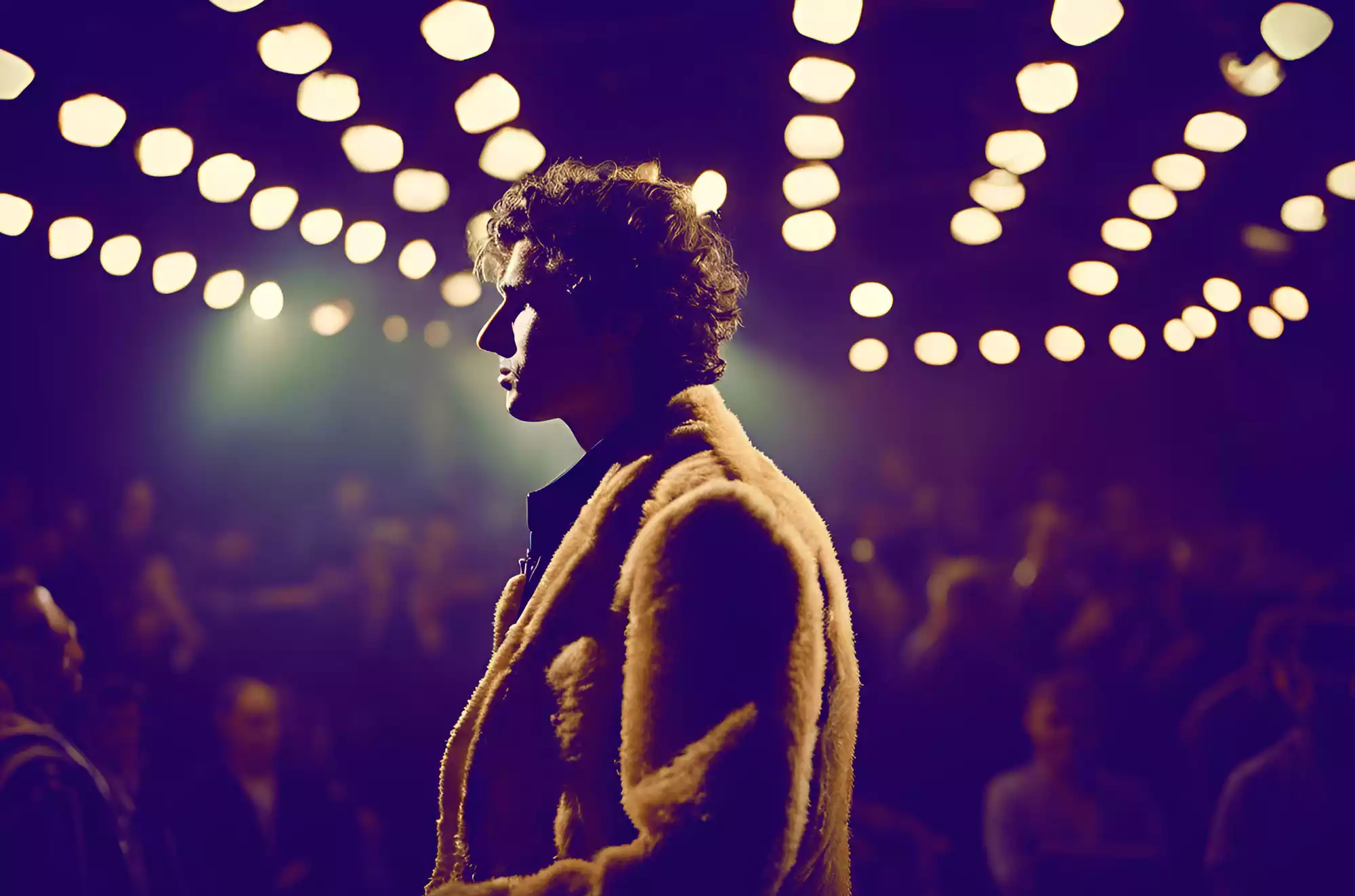Emerging musicians often struggle heavily with stage fright. But, did you know: many seasoned performers grapple with the same problem?
Stage fright, or performance anxiety, isn’t solely an emergent artist’s predicament—it’s a nearly universal phenomenon.
When the stage lights beam, a musician’s heart might race; her hands might quiver — cue ‘stage fright’. Like an omnipresent shadow, stage fright has loomed over countless performances throughout history.
At this intersection of art and trepidation, the question emerges: where does this this universal reaction originate? The science behind performance anxiety is intriguingly akin to a symphony — complex, layered, and capable of stirring deep responses.
The science of stage fright
Known formally as ‘performance anxiety’, stage fright springs from a cascade of psychological and physiological reactions. It’s evolutionary biology tuning up: the body’s ancient alarm system—the sympathetic nervous system—rehearsing its primal repertoire.
You see, under duress—be it predators of yesteryear, or the expectant auditorium’s patrons—our bodies do not discriminate. That old sabretooth-edged fear grips us similarly. Muscles tighten, breath quickens, and the primal brain sings a unified chorus with our sympathetic nervous system in what one would consider a commendable albeit misplaced urge for survival.
“The acute stress response involved in fight or flight sends adrenaline charging through our veins” explains one scientist. For musicians, it often crescendoes into those all-too-familiar sweaty palms, quickened pulse, jitters, or forgetting the song’s lyrics or the next line. Ultimately, this involuntary concert within may discordantly clash with the one intended for the audience’s ears.
So, what precisely incites this sweaty-palmed, heart-throbbing anticipation before taking the stage? The answer takes root in our biological response systems. At its core, stage fright is a manifestation of the primitive ‘fight or flight’ response—an archaic, ingrained mechanism which prepared our ancestors to either battle or flee in the face of threats. Unfortunately for those in the performing arts, this biological reaction often interprets taking the stage as such a threat.
Spotlight paralysis
As much an imaginary fear, as a physical plight, stage fright manages to cast a daunting spell over the minds of many performers. Onstage, artists conjure vulnerability. Each note additional exposure. Within those notes lie exposed nerves; pristine momentums wedded to potential judgments—real or imagined.
Think of it this way: when ancient humans encountered predators, their bodies pumped adrenaline to facilitate either fight or flight. In our modern context, the perceived predator is the looming risk of failure, and our response manifests as stage fright. The surge of adrenaline and high stakes creates mental roadblocks imprisoning us in negative thought patterns.
These actors of anxiety – spotlight paralysis, imposter syndrome, fear of inadequacy or judgment – can hold a powerful grip, pressing performers into corners. If we delve into the art world anecdotes, history is rife with both historical figures and contemporary icons who have battled these closely.
Science reveals the secret to overcoming stage fright
Groundbreaking research from sports psychology provides insight into maneuvering through this biological problem, even going so far as to make use of such boundless adrenaline.
The key lies in reframing: What if those physiological revivals were assets leaving creative footprints rather than saboteurs frightening muses asunder?
A Field Guide to Mastering Stage Fright for Emerging Artists
Preparatory Practices
Ensure your preparation relies on detail and structure. Performance psychologist Sian Beilock commented, “Choking is suboptimal performance.” She goes on: “not just poor performance. It’s a performance that is inferior to what you can do and have done in the past and occurs when you feel pressure to get everything right.”
Being meticulous in your rehearsal earmarks an increased level of comfort, and counteracts potential lapses in performance.
As the saying goes, “practice makes perfect.” However, when it comes to conquering stage fright, the concept of “over-preparing” can be even more valuable. Professional musicians often emphasize the importance of rehearsing to the point where the performance feels like second nature. By knowing your material inside and out, you can focus on delivering an authentic and engaging performance rather than worrying about potential mistakes.
Rituals and Routines
Find pre-show rituals and routines that steady otherwise shaky nerves. Green Room yoga, backstage humming—these routines aren’t quirks. They prompt focus and build a familiar environment amid an unpredictable live-performance landscape.
One of the most effective ways to combat stage fright is through a solid pre-performance routine. This includes relaxation techniques such as meditation, deep breathing exercises, and visualization. By taking the time to center yourself before stepping on stage, you can enter the performance with a clearer mind and a more relaxed body. Additionally, a thorough soundcheck and familiarization with the venue can help you feel more at ease in your surroundings.
The Role of Support Systems
Every performer needs a backbone – figuratively speaking of course – a personal guidance counselor one can lean on. Coaches, friends, parents, siblings, spouses, teachers, those who tell you the truth when you miss a note, a hand, a friend.
These relationships remind the artist of their worth beyond the imminent performance.
No one understands the challenges of stage fright better than fellow musicians. Surrounding yourself with a supportive community of peers, mentors, and coaches can provide a valuable source of encouragement and practical advice. For beginner singers, seeking guidance from a vocal coach can help build confidence and develop proper technique. Collaborating with other musicians and sharing experiences with stage fright can also help normalize the experience and provide a sense of camaraderie.
Physical Techniques: Combatting Symptoms of Anxiety
Stage fright often manifests in physical symptoms such as shaking hands, a quivering voice, or a racing heart. To manage these symptoms, professional musicians recommend paying attention to your stance, movement, and use of space on stage.
Stand tall, with your feet grounded and your shoulders relaxed. Use the stage to your advantage by moving purposefully and engaging with different sections of the audience. Controlled breathing techniques and subtle relaxation methods, such as tensing and releasing muscle groups, can also help you maintain physical composure.
Harnessing Nerves for Good
Use adrenaline, rather than facing it head-on. Adrenaline spikes during performances can bring an exciting energy to your work when commanded right.
Existing literature and examination of seasoned performers suggest that by channeling nerves productively, we can transform the perceived obstacle of stage fright into an asset: a dynamic, invigorating energy source. Radiohead’s Thom Yorke publicly dubbed that feeling (stage fright) as being “beyond fear”, a beautifully chaotic state he considered essential to his performance.
Recognize that those rapid heartbeats echo your passion for music and your desire to communicate that with an audience. In “The Emotional Brain,” a seminal work on the neural mechanics of emotions, esteemed cognitive neuroscientist Joseph LeDoux calls this conversion “flipping the emotional switch”.
Audience Engagement as an Anchor
It might seem intimidating to seek solace in the very crowd that triggered your stage fright. Yet, making a simple connection with an audience member or acknowledging the crowd’s support can instantly dilute the challenging barrier of stage fright.
The spotlight shining on performers isn’t a lonely source of light. Audiences don’t arrive at shows as detached observers. They engage because they wish to be moved, transformed, enlivened. Your performance is not merely a show for them, but a shared journey.
Engaging the audience recasts them as collaborators in your creative journey, rather than anonymous witnesses. Simply put, they are not templated spectators primed for criticism but compassionate partners in what can be considered an empathetic symphony of mass communication chaperoned by art.
Establishing rapport can be as subtle as exchanging glances with front-row attendees or as significant as acknowledging their presence through dialogue. Sharing anecdotes or short stories behind the songs heightens collective experiences and fosters mutual fondness between the performer and the audience.
Studies also reveal that direct eye contact with audience members can significantly reduce performers’ anxiety levels. Meeting eyes, nodding acknowledgment, or even sharing a smile can lift the cloud of fear that often intimidates newcomers to the stage.
Ultimately, practicing this connectivity bridges gaps between artists and the audience, assisting performers in setting panoramic views of performance.
After all, on stage, a performer and the audience form a symbiotic relationship, each feeding off the energy and emotions of the other. Acknowledging that connection, recognizing its power and beauty, serves as a strong anchor against stage fright.
Next steps for you
While stage fright may be a common challenge for all performers, it can be overcome through strategic preparation, supportive relationships, and audience engagement. By reframing stage fright as a natural part of the performance process and harnessing its energy positively, artists can transform this fear into fuel for their creative endeavors.
Conquering stage fright is a journey, not a one-time fix. By incorporating these strategies and insights into your performance preparation, you can gradually build your confidence and learn to embrace the stage with enthusiasm. Remember, every performance is an opportunity for growth, learning, and connection with your audience. As the renowned cellist Yo-Yo Ma once said, “The stage is a magical place where you can do things that you can’t do anywhere else.”
So, the next time you find yourself backstage, take a deep breath, trust in your preparation, and step into the spotlight with the knowledge that you have the tools and support to deliver your best performance yet.
Resources and Further Reading:
For those interested in further exploring techniques to combat stage fright, here are some valuable resources:
- “The Inner Game of Music” by Barry Green and W. Timothy Gallwey
- “Performance Success: Performing Your Best Under Pressure” by Don Greene provides techniques for managing anxiety and improving confidence on stage.
- “The Musician’s Way: A Guide to Practice, Performance, and Wellness” by Gerald Klickstein




